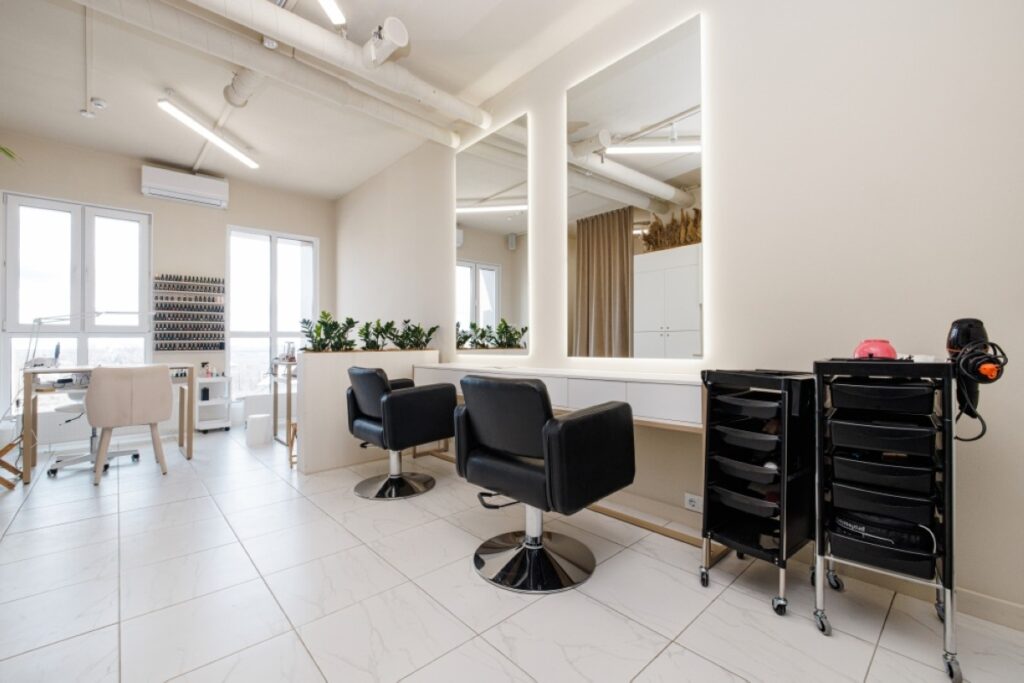Rules set safety measures for children as more youth use cosmetics and hair dyes, join fitness centers
KUWAIT: Kuwait’s Ministry of Health has recently published new regulations governing gyms, health institutes, and salons for men, women and children. The sector is one of Kuwait’s fastest-growing. According to Rentech Digital, a US-based enterprise solutions company, the country had 551 gyms and more than 1,200 beauty salons as of May 2025. While the numbers are based on web-scraping technology and may not be exact, they give a sense of the industry’s scale and the stakes behind the new rules.
The guidelines, endorsed by Health Minister Dr Ahmad Al-Awadhi in coordination with the Ministry of Commerce, cover everything from how businesses present their services to what products they can legally use. The document was published online on August 12.
Among the key requirements: salons must post licensed price lists clearly inside their premises. If enforced, the requirement is a shift from the current norm where many businesses only share prices on Instagram or booking apps. Staff must wear visible ID badges while working, something rarely seen in practice today.
Employees are also required to maintain valid health fitness certificates confirming they are free of contagious diseases. The certificates must be obtained after medical checks and required vaccinations at designated Ministry of Health centers, with appointments and records managed through the government’s Sahel app. No new staff may begin work until this clearance is issued.
Homemade treatments
The rules also crack down on the widespread use of homemade herbal treatments for hair and skin, requiring salons to use only ministry-approved cosmetic products with clear expiry dates. The preparation or sale of mixtures within the salon is prohibited unless their ingredients and expiry dates are labeled properly. When a cosmetic product is opened, a label must be placed on it indicating both the opening date and the expiration date after opening. Products such as hair dyes and henna must be licensed and traceable to known suppliers.
Other restrictions include prohibiting tattooing, permanent make-up, cupping, and ear-piercing devices without special permits. Workers with contagious or skin-related illnesses are barred from providing services, and must cover any wounds with waterproof bandages. Jewelry and accessories must be removed before providing treatments.
Additional requirements for salons include installing washbasins next to haircut chairs, which is rarely seen in salons. On client privacy, the regulations prohibit photographing or recording customers without consent. In practice, many salons already seek permission before posting clients’ images on social media.
Safety rules for children
Children’s gyms and salons also face strict conditions: Children wishing to participate in sports at gyms or health centers must present a valid health fitness certificate from the government health clinic in their residential area, and the facility must keep a record of that. Facilities must obtain parental consent for anyone under 18, and ensure certified trainers supervise all activities. Swimming pools require both a coach and a lifeguard on duty. The regulations prohibit the use of dietary supplements or protein products for children unless prescribed by a specialist and suitable for their stage of growth. Equipment and tools must be appropriate for children, and the use of bodybuilding or weightlifting machines is strictly banned. Training on how to use equipment must be provided under the direct supervision of qualified instructors to ensure safe and proper use.
In children’s salons, only mild, fragrance-free products are allowed. Hair dye and intensive skin treatments are banned, and children must be accompanied by a parent or guardian. Products containing chemicals such as parabens or phthalates are prohibited. The new rules also ban fake tanning for children under 18.
The focus on child safety comes as cosmetic use among younger age groups grows. In Kuwait, some children are already wearing makeup, getting their hair done, or even undergoing spray tans. Internationally, health experts have flagged risks from this trend. A recent study conducted in Scotland has found babies and toddlers exposed to fragranced sprays, nail polish, and even black henna tattoos, while research from Northwestern University showed children and teens on TikTok are being served skincare content featuring products with potential allergens.
Pediatric specialists caution that children’s skin is biologically different from adults’ — thinner, more absorbent, and more vulnerable. Ingredients commonly found in adult skincare, such as retinol or exfoliating acids, can irritate or damage a child’s skin barrier. Studies also suggest prolonged exposure may carry longer-term risks, including hormone disruption.

